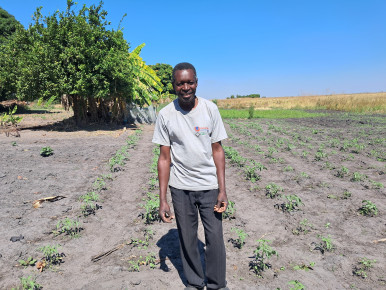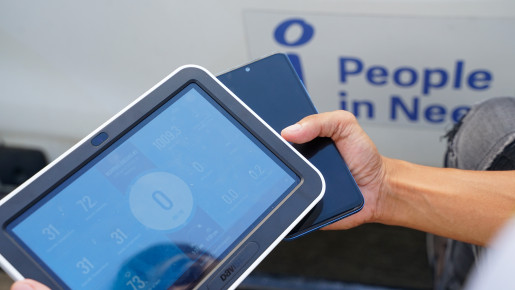Pastoralists in Ethiopia Affected by Severe Drought Receive Cash Assistance to Start New Life
Published: Nov 22, 2023 Reading time: 3 minutes Share: Share an articleDrought devastated the livelihoods of thousands of pastoralists in south Ethiopia. People in Need (PIN), funded by USAID´s Bureau for Humanitarian Assistance, is giving them money. Households can buy food, clothes or new livestock.

People from the Borena Zone in Oromia region, one of the largest pastoralists communities in Ethiopia, are very exposed to recurrent droughts. Many had to flee, and as a result of their displacement, they lost much of their livestock. Due to three Hagaya (short rainy season) and two Ganna (main rainy season) rain season failures, a devastating drought from 2021 to early 2023 affected the lives of everybody in the area. As a result, about 3.3 million head of livestock died, and around 300,000 people were internally displaced. Thousands of people are dependent on humanitarian aid. People in Need is helping them with a multi-sectoral life-saving project funded by USAID´s Bureau for Humanitarian Assistance. The 500 most vulnerable households in Borena, Teltele, Elwaye, and Dubuluk get cash assistance.
One of the people being supported is 30 year-old Deke Guyo Boru from the Arbala kebele (ward). Deke lives with a disability. Despite her disability, she has to support four family members. Before the onset of the ongoing drought, Deke Guyo and her family were considered a middle-class household with average livestock and enough resources to sustain their livelihoods. During the early stages of the recurrent drought, everything changed. “We lost more than 100 of our livestock assets and our crops were lost too,” she says.
For a community whose life is very much attached to livestock, this loss was devastating.
Deke’s household was selected for cash assistance along with 79 other households. Each of them received cash assistance in three rounds. From June to August 2023, they received 4,570 birr ($82) in two rounds and 5,810 birr ($105) in one round.
Deke managed to buy new livestock – 3 goats:
“I also used the money to purchase food and clothes for my children, which we would be unlikely to get without this assistance,“ she says.
In addition, Deke and her family used the cash assistance to buy medical insurance.
A total of 500 households who lived in five kebeles received a total of $137,497.41 in three rounds.


